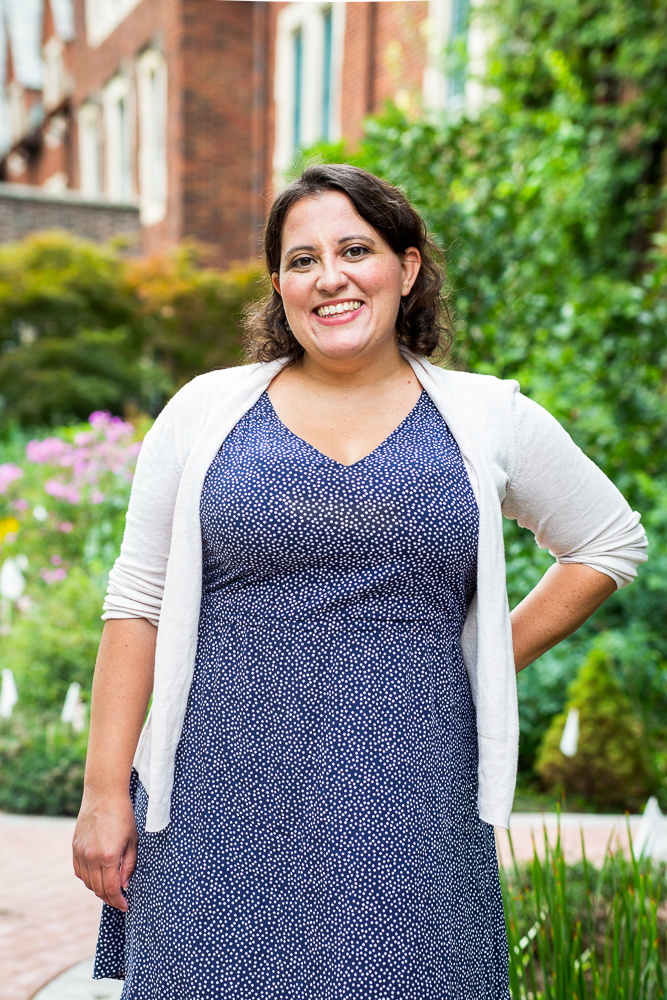Neuropsychological Assessments
Dr. Hastings, PsyD, Licensed Clinical Psychologist, Ally Carrino, M.Ed, Psychometrician, and Dr. Mary Collins, PhD, Post-Doctoral Fellow are the Neuropsychological Assessment Team at AMANI Clinical Services.
We specialize in differential diagnosis and use evidence-based assessment measures to provide comprehensive, thoughtful, and detailed evaluations throughout the lifespan. We start assessing development in children at age 3, assess for neurodevelopmental and social-emotional pediatric disorders at age 5 through adolescence (e.g. Intellectual Disability; Attention Deficit Hyperactivity Disorder; Obsessive Compulsive Disorder, etc.). We also are well known for our approach to differential diagnosis for adults. We provide specialized evaluations such as evaluations for bariatric surgery, donor conception, and surrogacy. We also serve people in the sunset years of their lives with neuropsychological/memory assessment.
We provide the following types of evaluations:
-
Pediatric & Adolescent evaluations
-
Neuropsychological
-
Intellectual disability
-
Giftedness (NOT covered by insurance)
-
Educational placement and early entry to Kindergarten (NOT covered by insurance)
- Learning disability (NOT covered by insurance)
-
Adult evaluations
-
Neuropsychological evaluations such as: Autism Spectrum & Attention Deficit Hyperactivity Disorder
-
Intellectual disability
-
Reproductive evaluations
-
Bariatric surgery evaluations
-
Donor conception evaluations
-
Surrogacy evaluations
-
-
Geriatric neuropsychological evaluations/memory evaluations
With respect to Pediatric Assessment, we believe in a comprehensive assessment approach which considers the importance of multiple contexts and types of assessment in understanding the child’s behaviors, emotions, and needs. The importance of thorough, differential diagnosis drives our assessment approach. We observe the primary contexts the child exists within (home and school) to determine that symptoms are in fact legitimate pathology rather than a function of the environment. A systemic analysis helps to determine where undesirable behaviors are being reinforced so parents and teachers can be trained to stop reinforcing them and begin reinforcing the behaviors they do want. We provide parents with a thorough battery data analysis and a thoughtful, evidence-based treatment plan. We are happy to send copies of the report, or report summary, to other professionals at the request of parents with a signed Release of Information form authorizing us to do so.
Investment
Psychological and neuropsychological testing take many, many hours of time and are an investment in yourself or your child. To help make our excellent, comprehensive, and thorough evaluations more accessible to patients that do not have Blue Cross Blue Shield PPO or Medicare, or patients with high deductible Blue Cross Blue Shield PPO plans, we accept CareCredit. We accept Care Credit to help you get the care you need now.
We are excited to offer NO INTEREST IF PAID IN FULL Special Promotional Financing for 6, 12, and 18 months for fees over $200 and REDUCED APR AND FIXED MONTHLY PAYMENTS REQUIRED UNTIL PAID IN FULL Special Promotional Financing for 24, 36, 48, and 60 months for fees over $1000. This can help families with out of network coverage afford our high quality neuropsychological, bariatric, donor conception and surrogacy evaluations. Apply for Care Credit through our Care Credit Portal here.
 Common Questions
Common Questions
1. What is a neuropsychological assessment?
I have worked hard to create my assessment approach. I am dedicated to ensuring that you or your child receive a comprehensive neuropsychological assessment which considers the importance of multiple contexts in understanding you or your child’s strengths and weaknesses, behaviors, emotions, and needs. Each part of the assessment plan is critical in helping us create a rich, clinical picture of your child.
A neuropsychological assessment battery is a set of standardized assessments utilized to assess various areas of thinking, behaving, and functioning, often for determining the diagnostic etiology (origin) of non-specific symptoms (symptoms which are not specific to any particular disorder or diagnosis but are frequently part of the symptomatic presentation of many different disorders and diagnoses) and other problems your child may be experiencing. Differential diagnosis is profoundly important to creating—and assessing—treatment plans. We will create a tailored battery specifically for you or your child.
Best practice for differential diagnosis includes a comprehensive evaluation utilizing data from multiple sources to differentiate and determine diagnostic causes, which adequately explain symptomatology. It is not advisable to utilize one assessment or one data point. Domains of functioning which are typically assessed in children, adolescents, and adults include (but are tailored specifically based on the referral question and if using BCBS PPO insurance, what insurance will allow): developmental, medical, and family history, intellectual functioning, neuropsychological functioning (attention, memory, planning and organization, learning, language, visual-motor integration), social functioning, emotional functioning, adaptive functioning, level of maladaptive functioning, familial functioning, dyadic functioning (relationship between the patient and primary caregiver) and behavioral functioning.
2. How will a neuropsychological evaluation help me? My child? My family?
After all data has been collected and analyzed, we will have a good sense of what is going on for you or your child, and if there is a diagnosis. We will also better understand the factors at play which are making things more difficult internally and your, or in his/her important environments (e.g. home, school, friends, etc.). Based on any discovered diagnosis and/or a clearer understanding of the factors that are working for or against you or your child, we create specific, real-world, and daily recommendations for both home, relationships, work, and school as applicable. We might also recommend further evaluation (e.g. like bloodwork) or consultation with additional specialties (e.g. neurology). Additionally, if a part of the treatment plan includes other special services (e.g. specific type of tutoring for a learning disability or family psychotherapy), we’ll also provide referrals.
3. How long is the process?
Neuropsychological evaluation is an extensive, time-intensive, and labor-intensive process in order to best understand the results and needs of the child.
- The observation period (home and school; not applicable during COVID) can take 1-3 weeks depending on school observation availability (every school is different), family availability for in home observation, and how that interacts with assessor’s schedule
- Completion of testing, depending on your and your family's schedule and how that interacts with the assessor’s schedule, generally takes between 1 and 4 weeks. We try to schedule both testing blocks (2 blocks of 3-4 hours each) during the same week. We only do Day 1 testing on Wednesdays and Day 2 testing on Thursdays.
- After all information is received from all informants (parents, teachers, tutors, etc.), parents should expect to have a feedback session scheduled 1-3 weeks after the last piece of data has been received from all informants.
- The final report will be provided to parents 1-2 weeks after the feedback session.
4. If applicable, what should I tell my child about the assessment process?
We advocate for transparency with your child. You can emphasize that they will get questions wrong and that the goal is that they try their best. You may find it helpful to tell your child that the assessment will help us determine their brain’s strengths and weaknesses. We also seek to discover what they need to feel as happy as possible and to be as successful as possible. Please also let them know that there will not be any scary machines or shots. You should also mention that there is nothing that they can study for.
5. Who will I be working with?
Dr. Hastings, a Licensed Clinical Psychologist, will be in charge of your case. You’ll meet with her for clarifying interview and assessment and following the completion of testing when our results are ready and we are ready to explain the findings, treatment plan, and recommendations. The clinical interview and administration of the neuropsychological assessments will be conducted by a specially trained psychometrician.
6. How should I prepare myself or help my child prepare?
Patients should get a good night’s rest the night before and have something to eat before testing begins. Make sure the patient is dressed comfortably. Make sure you or your child takes their normal medications as instructed by their prescribing physician unless Dr. Hastings requests to collaborate with the prescribing physician to create another plan. Bring glasses, hearing aids, or mobility devices. Make sure to bring something to drink and a lunch.
7. What should we bring?
Please make sure you or your child bring glasses or any hearing aids, if applicable. Please bring a lunch, drinks, and water for your child.
8. Is WIFI available for parents in the waiting room?
Yes!
9. What if I or my child don't finish testing in the allotted time?
We will try to schedule an additional testing session, if insurance parameters allow.




